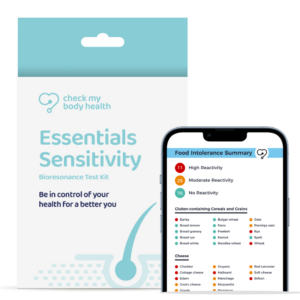Published May 15, 2020
It is a well-known fact that ‘you are what you eat’, and certain foods will stabilise both your physical and mental health, prevent mood swings and give you much more of a sense of wellbeing. There is a strong relationship between food and mood. Making subtle changes to your dietary patterns and content, may well chase the blues away.
If you are already taking any form of medication for moods, depression, anxiety or other mind related illness, you would need to consult your doctor or medical practitioner before making any changes – certain foods can react adversely to medication and should therefore be avoided.
Similarly, if you suffer from diabetes, or any other long-term illness, you should again consult your doctor regarding any changes in diet.
Recognise and acknowledge mood changes
Mood changes or swings can be light or a little more serious. The BDA (British Dietetic Association) state that one in four human beings will probably experience changes in mood during their lifetime. Fortunately, the majority are not serious and can be eased or cured by changes in lifestyle and diet.
Make some subtle changes to your lifestyle and diet
Before launching into any drastic changes in your diet, some small steps to start with can make a difference in terms of your lifestyle, which can often affect your mood. With the UK currently under lockdown, it could be a good time to change your habits in terms of eating, although for some, this may prove difficult. Some sound suggestions are:
- Eat breakfast, do not skip it. Often with a busy work life, breakfast is the last thing people think of eating, and potentially survive on the ‘grab and go’ method. Take time for a light breakfast and try to avoid copious amounts of caffeine as a substitute throughout the morning. Caffeine is a stimulant found in coffee, tea or fizzy drinks such as cola, which gives you a quick rush of energy. However, the ‘come down’ from such beverages can cause agitation, nervousness, anxiety and even depression. Equally so, chocolate as a substitute for breakfast can cause the same reactions.
- Eat small but regularly throughout the day. Avoid huge meals at lunchtime (because you skipped breakfast), and keep some healthy snacks in the fridge, such as sliced vegetables or fruit crudités. Your evening meal should also be relatively light, and not eaten just before bedtime.
- By eating regularly, you can avoid a drop in your blood sugar, which can potentially make you feel depressed, irritable or sluggish. Foods that release energy slowly such as pasta, rice, oats, wholegrains, nuts and seeds are ideal choices. Healthy carbohydrates are a necessity to avoid erratic glucose levels.
- Protect your gut. Your brain and moods have a big effect on how your gut behaves. Keep your digestive system healthy and include plenty of fibre. Mood foods that help this process are fruit, vegetables, beans, pulses and probiotics such as live yoghurt.
- It goes without saying that fresh air and exercise clear your mind and your moods as well as lift your spirits. This is virtually as important as what you are consuming if you want to banish mood disturbances. Music is another leveller, so put on something lively and get the vacuum out or put something soothing on if you are feeling stressed.
Changing the balance of your brain
If your diet is lacking in certain essential macronutrients, this can greatly affect your mind. Your brain contains many chemicals and if these become imbalanced, your mood and feelings will be affected. Protein contains amino acids which are the foundation of these chemicals – should you not be eating enough protein foods, this will reflect in your mental condition. Lean meats, fish, eggs, legumes, nuts and seeds can help you here, and will also satiate your appetite.
Naturally, recurring chemicals in the brain that affect your mood are dopamine, norepinephrine and serotonin. The first two of these are those that affect your energy and alertness, whereas serotonin is a calming chemical that gives you the feel-good factor. Known as ‘neurotransmitters’, they can still be helped by dietary control and outdoor exercise.
Vitamin and mineral deficiency
Being deficient in either or both, can reflect on your brain and moods. Maintaining a well-balanced diet whether in lockdown or our normal world is essential for your mental health.
Your food choices will affect you. Making simple choices of food that contains essential macro and micronutrients will greatly help you both physically and mentally. Supporting your life with a constant supply of nutrients will pave the way to making you happy with yourself in all aspects. Good food nurtures good mood.
Whilst certain foods give you that instant ‘pleasure’ factor (chocolate, cakes, sweets etc.), in the long term, they can be detrimental to your wellbeing.
The brain is a complex part of the body and should be handled with care and attention. If at any time you are experiencing drastic highs or lows, or any form of mood swings that may make you feel a little desperate, you should consult your GP or medical professional to help you. Do not suffer in silence, there is no stigma attached to depression, anxiety or any other form of disturbance to your mind. It is quite common in today’s world, so never feel embarrassed.
Written by Bev Walton, BSc Nutritional Science
I achieved a First-Class Honours degree in BSc Nutritional Science, Nutrition Sciences from the University of Reading and now have over 35 years experience in all types of cuisine, dietary plans, recipe development, health and nutrition. I have been writing for over 10 years for magazines and websites as well as ghostwriting for ebooks, Kindle and fully published books. I’m also a proud member of the Guild of Food writers.




